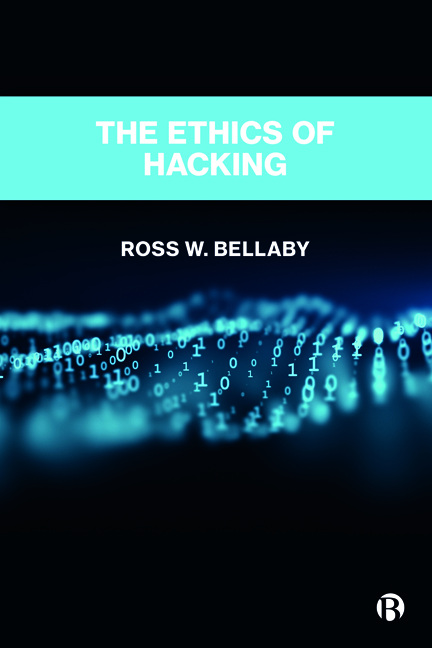Book contents
- Frontmatter
- Dedication
- Contents
- Introduction
- 1 Hacks, Hackers and Political Hacking
- 2 An Ethical Framework for Hacking Operations
- 3 Political Autonomy, the Arab Spring and Anonymous
- 4 Leaks: From Whistleblowing to Doxxing
- 5 Correcting the Failure of the State
- 6 Looking Back, Moving Forward
- Conclusion
- References
- Index
6 - Looking Back, Moving Forward
Published online by Cambridge University Press: 18 January 2024
- Frontmatter
- Dedication
- Contents
- Introduction
- 1 Hacks, Hackers and Political Hacking
- 2 An Ethical Framework for Hacking Operations
- 3 Political Autonomy, the Arab Spring and Anonymous
- 4 Leaks: From Whistleblowing to Doxxing
- 5 Correcting the Failure of the State
- 6 Looking Back, Moving Forward
- Conclusion
- References
- Index
Summary
Introduction
As outlined in the Introduction, it is not the aim of the ethical framework to inadvertently open the door to all private forms of political violence, nor is it to justify all hacking; the purpose is to highlight the space for hackers to operate as legitimate actors and to guide hacker activity by detailing what actions are justified toward what end. Following the detailing of the ethical framework in Chapters 1 and 2, and the application in Chapters 3, 4 and 5, there are two further tasks. One is to establish some critical mechanisms – both theoretical and practical – to stop abuse and to aid hackers in reaching ethically justified decisions. The second is to widen the perspective to examine what implications this work has on how society should respond and reconceptualize political hacking. This includes a reflection on how existing legal and social frameworks are reacting to political hacking most broadly in order to highlight how they can better reflect the central argument for an (un)ethical hacker, a reconceptualization of ‘security’, and the argument for a more open and engaged set of state actors.
Limiting the abuse
Right intention
One of the key challenges with an ethical framework like the one outlined in this book is the potential for abuse. This can include using the ethical framework to justify one's actions by meeting the criteria superficially in a check-list approach, resulting in unjustified harm or personal gain masquerading as an ethical benefit. Such abuse is an established challenge for all ethical frameworks, especially those that argue for the justification of defensive harm or are seen to work in a ‘box-ticking’ manner. In limiting this potential for abuse it is essential to stress and reflect on both the theoretical underpinning of the ethical framework itself in order to avoid abuse through superficial engagement, as well as some of the practical mechanisms that can be entrenched to aid in a fuller and correct critical reflection and engagement with the theoretical principles. As Candice Delmas argues, such reflective constraints are necessary and useful as they help distinguish between ‘the Ku Klux Klan's vigilante terrorism and self-defence ⦠of the Deacons Defence ⦠or between British feminist street artist Bambi's politically conscious graffiti and swastika vandalism’ (Delmas, 2018b: 48).
- Type
- Chapter
- Information
- The Ethics of Hacking , pp. 107 - 122Publisher: Bristol University PressPrint publication year: 2023



